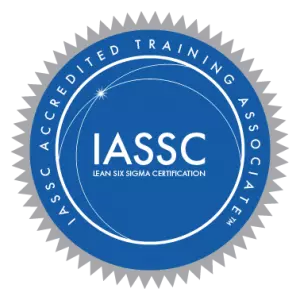
The effectiveness of Six Sigma certification can depend on a variety of factors, including the level of training and experience of the individual, the quality of the training program, and the level of commitment and support from the organization.
In general, Six Sigma certification can be effective in helping individuals develop the knowledge and skills needed to improve processes and reduce defects within their organization. Six Sigma's DMAIC (Define, Measure, Analyze, Improve, Control) methodology provides a structured approach to identifying and solving problems, which can lead to significant improvements in efficiency, quality, and cost savings.
However, Lean Six Sigma certification alone does not guarantee success. The certification is just one component of a larger quality improvement initiative. The organization must also have the right culture, infrastructure, and resources in place to support Six Sigma implementation. Additionally, the organization must commit to continuous improvement and a willingness to invest time and resources into the initiative.
A Six Sigma black belt certification and Six Sigma Green Belt certification can open up a variety of career opportunities in different industries, including manufacturing, healthcare, finance, and service-based industries. Some of the career options available after obtaining a Six Sigma certification in 2023 include:
- Quality Engineer: A quality engineer is responsible for ensuring that products and services meet the required quality standards. They use Six Sigma methodologies to improve processes and reduce defects.
- Process Engineer: A process engineer uses Six Sigma tools and techniques to optimize processes and improve efficiency.
- Six Sigma Consultant: A Six Sigma consultant helps organizations implement the Six Sigma methodology and provides training and support for employees.
- Operations Manager: An operations manager is responsible for overseeing the day-to-day operations of a business. They use Six Sigma methodologies to improve processes and increase efficiency.
- Project Manager: A project manager is responsible for planning, executing, and closing projects. They use Six Sigma methodologies to ensure that projects are completed on time and within budget.
- Continuous Improvement Manager: A Continuous Improvement Manager is responsible for identifying, implementing, and monitoring initiatives to improve the performance and efficiency of an organization.
Please note that the above-mentioned career options are just examples, the actual job titles and responsibilities may vary depending on the organization and industry.
Six Sigma certification can provide several career benefits, including:
- Increased job opportunities: Six Sigma certification is highly respected in many industries and can open up job opportunities that may not have been available otherwise.
- Higher earning potential: Six Sigma-certified individuals often have higher earning potential than those without certification.
- Improved problem-solving skills: Six Sigma training emphasizes a data-driven approach to problem-solving, which can be valuable in a variety of roles and industries.
- Better decision-making: Six Sigma teaches tools for data analysis and decision-making, which can be valuable in a variety of roles and industries.
- Improved efficiency and productivity: Six Sigma's focus on process improvement can lead to increased efficiency and productivity in the workplace.
- Better career mobility: Six Sigma certification can provide a foundation for career advancement, and the skills and knowledge you gain can be applied to a wide range of roles and industries.
Conclusion
In summary, Six Sigma certification can be an effective tool for individuals and organizations looking to improve their processes and performance, but it is not a magic solution. It requires a strong commitment, the right infrastructure, and a culture of continuous improvement to be truly effective.




